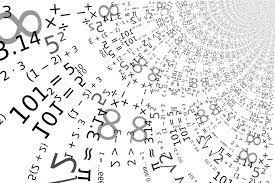Do you have a problem with numbers? Do you find yourself constantly counting things, or doing math in your head? If so, you may be suffering from arithmomania. This is a condition that causes people to become obsessed with numbers and counting. While it is not a well-known disorder, it can be very harmful to the sufferer’s life. This blog post will discuss arithmomania treatment and what you need to know about this condition.
Contents
What Is Arithmomania?

Arithmomania is a disorder characterized by an overwhelming obsession with numbers and counting. It can manifest in different ways, including a compulsion to count objects around one’s environment or the need to calculate equations mentally constantly. Arithmomania is related to obsessive-compulsive disorder (OCD) but is considered separate due to its specific focus on numbers.
Arithmomania is typically diagnosed by either a psychiatrist or psychologist through observation of behaviors and symptoms associated with the condition. An individual who displays signs of arithmomania may find it difficult to concentrate or complete tasks without counting or calculating something first. They may also exhibit repetitive behaviors such as tapping fingers or rocking back and forth or engaging in counting rituals.
Treatment for Arithmomania
Treating Arithmomania can be a long and challenging process. It is important to understand that this type of obsessive-compulsive disorder may require intensive therapy, support from family members and friends, and in some cases, medication or other interventions.
When seeking treatment for Arithmomania, it is important to find a qualified mental health professional who has experience with OCD and can provide the appropriate level of care. Some of the treatment methods are:
Medications

One of the most common types of treatment for Arithmomania is the use of medications that can help reduce the symptoms of OCD. These medications work by altering the levels of certain brain chemicals (neurotransmitters) that are involved in OCD behaviors. Common medications used in treating Arithmomania include :
SSRS
SSRs (selective serotonin reuptake inhibitors) are the most commonly prescribed type of medication for OCD. they work by increasing levels of the neurotransmitter serotonin in the brain, which helps to reduce the symptoms of OCD. A common type of medication that is used to treat Arithmomania includes:
- fluoxetine (Prozac)
- Sertraline (Zoloft)
- Paroxetine (Paxil)
- Fluvoxamine (Luvox).
Antipsychotics
One type of medication that may be used to treat Arithmomania is antipsychotics. Antipsychotics work by blocking dopamine receptors in the brain, which helps to reduce symptoms such as obsessions and compulsions. Common types of antipsychotic medications include:
- Chlorpromazine (Thorazine)
- Haloperidol (Haldol)
- Risperidone (Risperdal).
Psychotherapy
Psychotherapy is another type of treatment for Arithmomania. It involves talking with a mental health professional about thoughts, feelings, and behaviors related to OCD. Through psychotherapy, individuals can learn coping strategies and gain insight into their behavior. Examples of psychotherapy treatments include:
Cognitive Behavioural Therapy
One type of psychotherapy used to treat Arithmomania is cognitive-behavioral therapy (CBT). This type of therapy helps individuals identify and change unhealthy thought patterns and behavior. It also teaches people how to better manage their stress levels, which can help reduce symptoms of OCD. This therapy works by helping individuals become aware of the connection between thoughts, feelings, and behaviors.
Exposure and Response Prevention
Another type of psychotherapy used to treat Arithmomania is exposure and response prevention (ERP). This type of therapy works by gradually exposing someone to their obsessions or compulsions in a safe environment. Over time, individuals learn how to reduce their anxiety by resisting the urge to engage in compulsive behavior. ERP works by helping individuals become more comfortable with their anxiety to reduce their symptoms.
Psychoanalytic Therapy
One type of psychotherapy used to treat Arithmomania is psychoanalytic therapy. This type of therapy works by exploring underlying conflicts and issues to gain a better understanding of the individual’s behavior. Through psychoanalytic therapy, individuals can gain insight into their thoughts and behaviors as well as develop coping strategies for managing OCD symptoms.
Family Therapy
One type of treatment for Arithmomania is family therapy. This type of therapy works by helping family members and loved ones learn how to better support the individual with OCD. It also can help individuals develop healthy communication skills and gain insight into their behavior. Family therapy is an important part of treating a person’s OCD, as it can have a big impact on the overall treatment process.
Humanistic Therapy
An additional type of treatment for Arithmomania is humanistic therapy. This type of therapy works by looking at the individual as a whole and helping them to find meaning in their life. Through humanistic therapy, individuals can learn how to be kinder and more understanding towards themselves as well as gain insight into their behaviors.
Alternative Treatments
In addition to medications and psychotherapy, other alternative treatments may be used to treat Arithmomania. These treatments include:
Meditation

One type of alternative treatment that may be used to treat Arithmomania is meditation. This type of practice helps individuals become more aware of their thoughts and feelings to gain a better understanding of them. Meditation can help people reduce stress levels, which can help reduce the symptoms of OCD.
Relaxation Techniques
Another type of alternative treatment for Arithmomania is relaxation techniques. These techniques involve activities such as deep breathing, progressive muscle relaxation, and visualization, which can help to reduce anxiety levels and provide relief from OCD symptoms.
Yoga
Yoga is another type of alternative treatment that may be used to manage the symptoms of Arithmomania. Also, Yoga helps individuals become more mindful and accept themselves as they are, which can help reduce stress and anxiety levels. Additionally, yoga can help individuals develop techniques for better managing their symptoms. This type of exercise can be beneficial for individuals with OCD, as it not only provides physical benefits but also mental and emotional relief.
Good Food
One of the most important elements of treating Arithmomania is eating a balanced and nutritious diet. Eating healthy foods can help individuals cope with stress, which can reduce symptoms of OCD. A balanced diet should include fruits, vegetables, whole grains, lean proteins, and healthy fats. Additionally, it is important to limit processed or sugary foods as they can increase anxiety levels and worsen symptoms of OCD.
Exercise
Also important for treating Arithmomania is regular exercise. Exercise can help individuals reduce stress and improve their overall mood. Additionally, physical activity can help individuals become more mindful and aware of their thoughts and feelings to better manage their symptoms. It is important to find an exercise routine that works best for the individual, as this will allow them to get the most benefit out of it.
Good Sleep
When it comes to treating Arithmomania, good sleep patterns are key. Establishing a regular sleep schedule can help individuals better manage their symptoms. Additionally, ensuring that the bedroom is dark and quiet can help individuals get the rest they need to function at their best.
Journaling
When it comes to treating Arithmomania, journaling is an important tool. Journaling can help individuals become more aware of their thoughts and feelings, which can allow them to better manage their symptoms. Additionally, writing down experiences and events that have caused stress or anxiety can help individuals put those worries into perspective and develop coping skills for dealing with them in the future.
Support Groups

For those who suffer from Arithmomania, there are many support groups available. Support groups provide a safe space for people to talk about their experiences and connect with others who have similar struggles. These groups also help individuals to develop coping strategies and gain better insight into their behavior. Additionally, support groups can help motivate individuals to stick with treatment plans and stay on track with recovery goals.
Overall, it is important to consult a medical professional to find the best treatment for Arithmomania. There are many different treatment options available and it is important to choose the one that works best for each individual’s needs. It is also important to remember that recovery from this disorder does take time and dedication, but with the right treatment plan and support, anyone can learn how to manage their symptoms and lead a healthy life.
Conclusion
Arithmomania is a serious condition that requires specialized treatment. By seeking help from a professional, individuals suffering from Arithmomania can begin to make progress toward better managing their urges, controlling their thoughts and impulses, and finding relief from the symptoms of this disorder.
Arithmomania treatment requires professional help for an individual to effectively manage the condition. If you think you are suffering from Arithmomania or know someone who is, it’s important to seek help as soon as possible. A mental health professional can guide you through the necessary steps and tools that will be most effective in managing your Arithmomania symptoms.
For more information and guidance, please contact OCDMantra. OCD is a mental health disorder characterized by obsessions and compulsions. If you have any queries regarding OCD treatment, ERP therapy experienced therapists at OCDMantra can help: Book a trial OCD therapy session.


